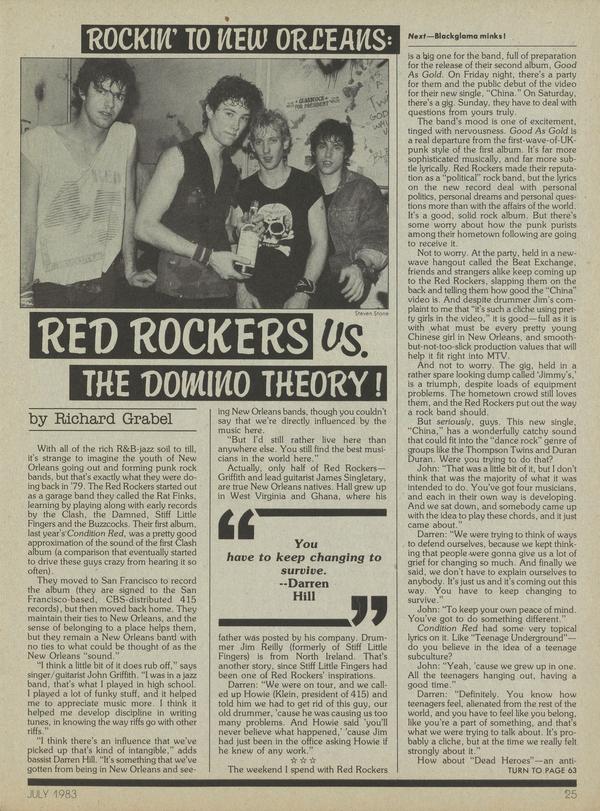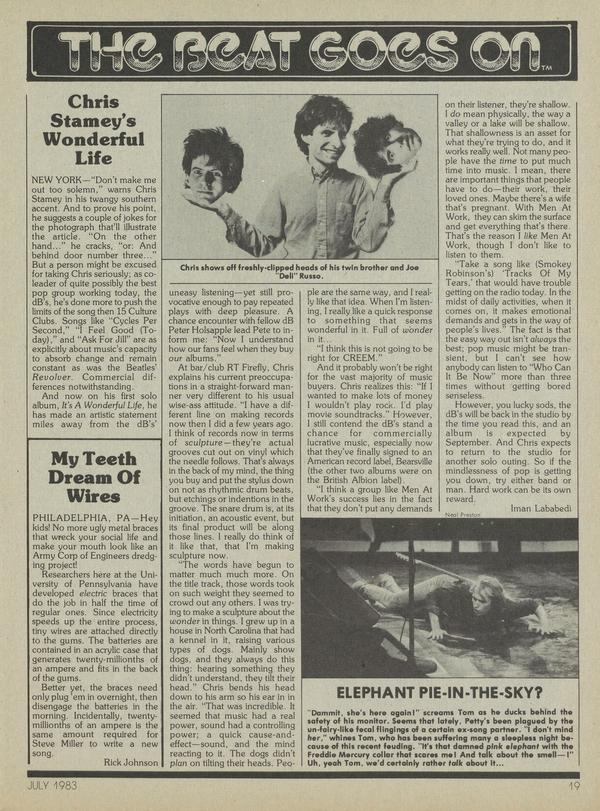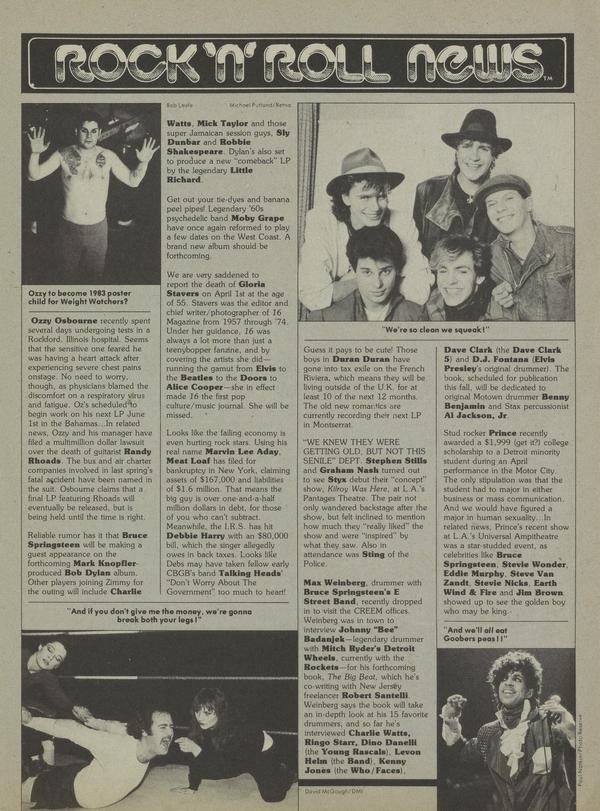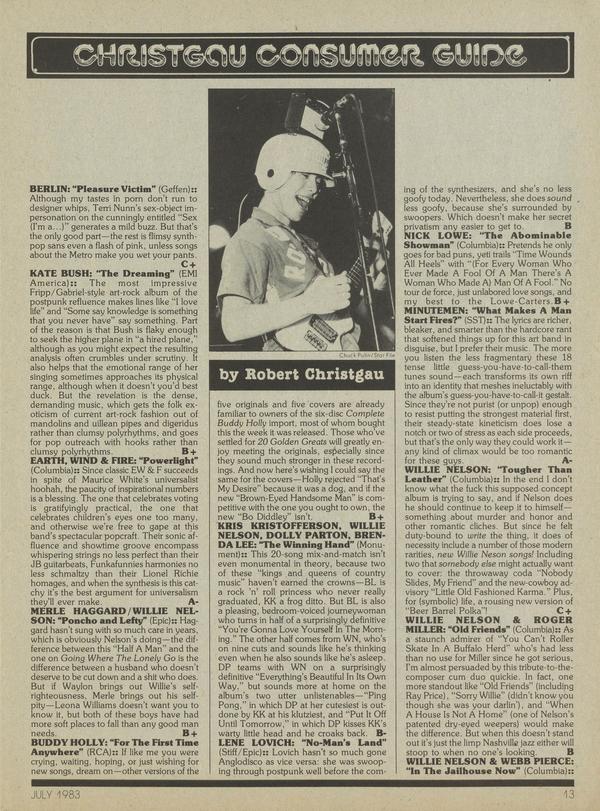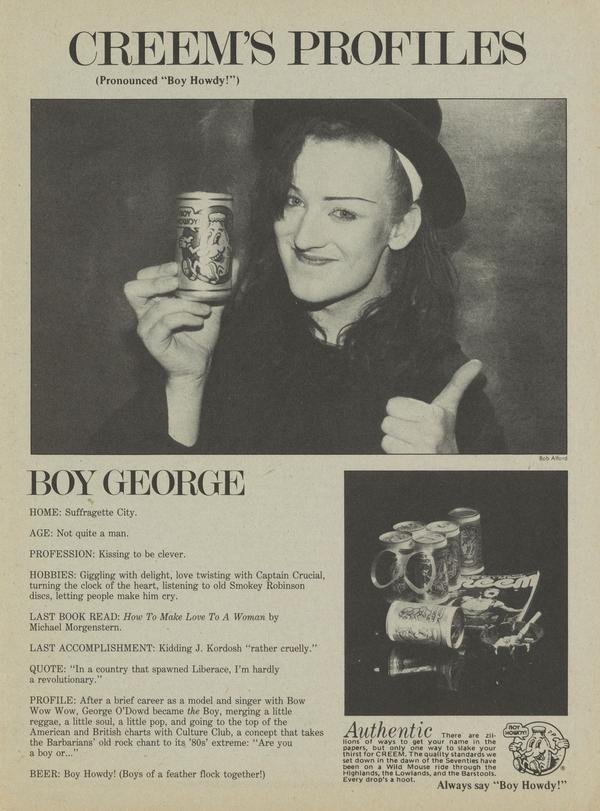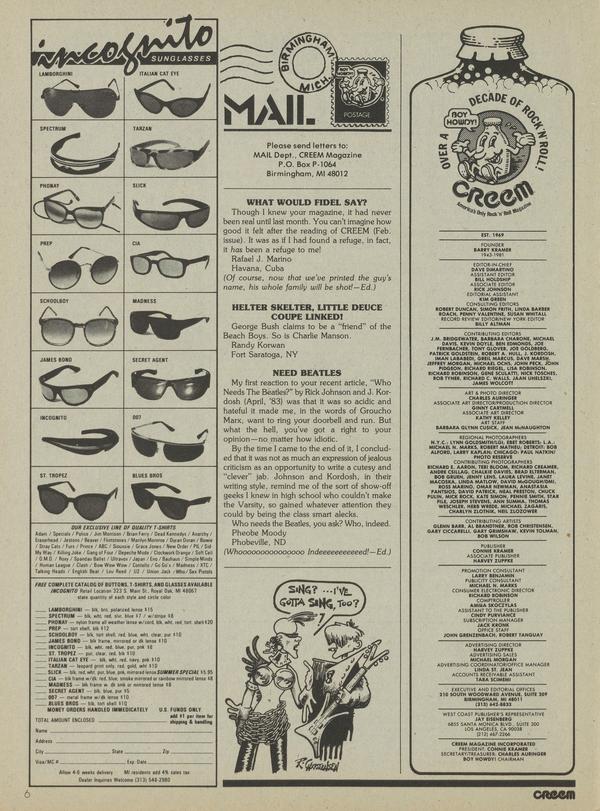Features
GEORGE CLINTON CRIES WOOF
Putting on the atomic dog.


George Clinton hunkers down into the couch in the conference room of Capitol’s Manhattan offices, pours himself a tall noontime glass of orange juice, and rubs his eyes. He looks very tired—he’s four weeks into a grueling (26 people traveling by bus, playing clubs and small halls) four-month tour. He also looks very happy—it’s his first tour in two years, which is a long time off for a workaholic like Clinton.
Not that Clinton was completely idle during this period. He mastered Galaga and got passably good at a few other video games, a recently-acquired obsession that provides the cornerstone for his current (and great, and even successful) Computer Games solo album. He also produced “about 15 to 17 albums” (all unreleased) by various old and new acts within his funk axis. But Clinton is the man who spent most of the last decade revolutionizing black popular music as surely as Ray Charles, James Brown, Sam Cooke, Motown, Otis Redding and Aretha Franklin, Jimi Hendrix and Sly Stone did before him—and unlike most of them, he did it without benefit of white radio airplay. The last couple of years have seen a veritable funk explosion, among blacks in America and blacks and whites in England, and it hardly seems appropriate that Parliament and Funkadelic, Clinton’s two chief vehicles, should have been silent the whole time. “It all crumbled right around us for a second,” Clinton admits the afternoon before a show with the aptly-named P-Funk All Stars, the umbrella group behind him on both his solo album and tour. He says that calmly, matter-of-factly, but for a while there, Clinton would have been justified in hitting the panic button. Due to his unorthodox business set-up—especially the way he records essentially the same band on two different labels under two different names, but also his various spinoffs—George Clinton is no stranger to legal wrangling. But even by his standards, this last one was a doozy.


